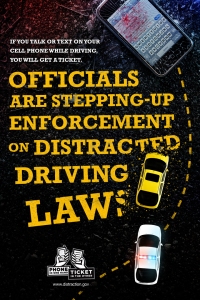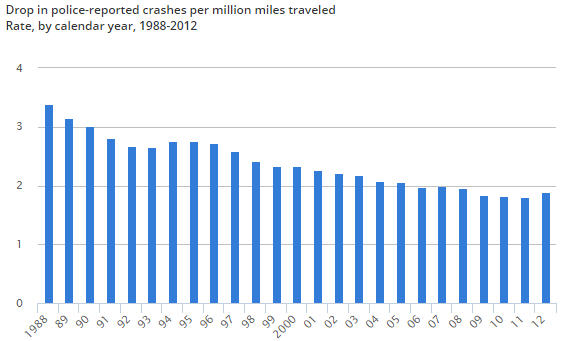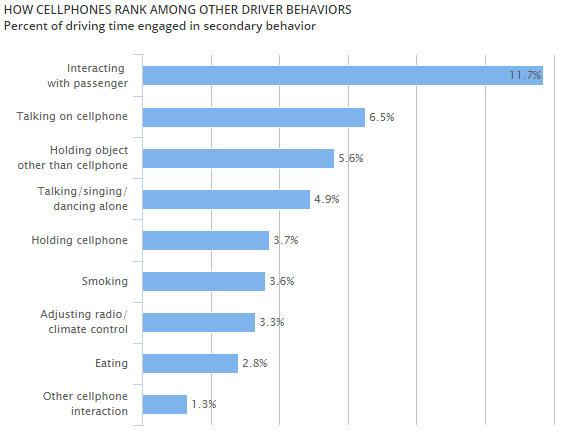 The Insurance Institute for Highway Safety recently published a Status Update titled “Searching for answers on distraction.”
The Insurance Institute for Highway Safety recently published a Status Update titled “Searching for answers on distraction.”
This Status Update sheds new light on our evolving understanding of distracted driving, it’s contributing factors and compounding factors.
The article begins with a clear admonition followed by the conclusion of this most recent study:
Using a cellphone while driving is risky and can lead to crashes. Making or taking calls, texting, or interacting with an electronic device in any way can take your eyes off the road at a critical moment…
…A new study by IIHS in partnership with Virginia Tech helps clarify the risk of cellphone use behind the wheel and offers insight into other distracting things drivers do when they aren’t using cellphones. The research points to the need for a broader strategy to deal with the ways that drivers can be distracted.
It seems that as soon as this study and it’s summaries were released, critics came shouting that the study undermines the need to be vigilant in discouraging cell phone use of any type. However, the article makes it plainly clear that cell use isn’t the only issue we need to consider (yes, avoid cells, but no, don’t myopically focus on cells as the sole problem source)
Here’s the rub. While cell use has skyrocketed, during the same time period, overall crash rates have plummeted.
What does that mean? From the study:
This doesn’t mean phone use behind the wheel is harmless. Numerous experimental studies have shown that talking on a cellphone reduces a driver’s reaction time, potentially increasing crash risk. Cellphone use also affects how drivers scan and process information from the roadway. The cognitive distractions associated with cellphone use can lead to so-called inattention blindness in which drivers fail to comprehend or process information from objects in the road even if they are looking at them. Studies also have found negative effects of texting on driving performance. The research is still unfolding, but there is a basic conundrum: Why is a distracting behavior not increasing crash rates?“
The studies suggest a link between compounding behaviors and crash risk – when distracted in different ways or by more than one type of distraction, crash risk seems to go up. So “multitasking” while driving = you’re not really driving, you’re busy being productive at your day job instead. Plus, some other behaviors seem to be even more problematic than talking on your phone.
This simply means we need to work at getting drivers to become more vigilant in their driving duties regardless of the nature or source of their distraction — indeed, put down the phone, but also stop the other distractions, too!




Great point Paul. While cell phones are a critical piece of the distrated driver issue, it is an addition to a plethora of issues that take focus away from the driving task. Spill that coffee on you, answer your cell phone, drop that cigarette – all are distrations from the primary task of driving. Add some fatigue to the picture and really make things bad. All drivers need to be convinced that activities other than controlling the vehicle are a crash waiting to happen and can easily be prevented.